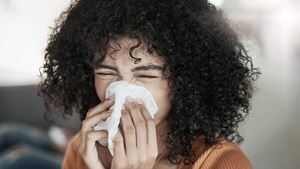
Since the start of the COVID-19 pandemic, our understanding of the virus and how it affects the body has grown. Researchers continue to track how the virus behaves, how people become sick, and which methods of prevention work best for everyone.
We review the symptoms of the illness, how to recognize and treat those symptoms, and the best ways to stay healthy.
Feeling Sick? Start A Virtual Urgent Care Visit
As with most viruses, COVID-19 has many different variants that change over time. While COVID variants continue to evolve, scientists are not seeing many new symptoms for people who become sick from the virus.
Most people who are sick from COVID-19 have at least one of the following symptoms:
Some research found body aches, cough, and loss of taste or smell were better indicators of a COVID-19 infection than muscle aches or a fever.
Once you test positive for COVID-19, one of the most effective ways to treat the virus is using Paxlovid. Clinical trials show the drug is 86 percent effective at reducing the risk of hospitalization or death. For those who are age 50 or older, or are at a high risk for developing a severe COVID-19 infection, using the drug can be very helpful.
People should talk with their provider before taking Paxlovid because some medications may interact with the drug – including drugs used to treat high blood pressure or prevent blood clots.
Otherwise, the best way to treat COVID symptoms is with plenty of rest and fluids, and by staying home.
The COVID-19 virus spreads through the air via droplets. Those droplets are released into the air when an infected person coughs, sneezes, or talks and can land in the mouths or noses of people who are nearby or be inhaled into the lungs.
Research shows the most effective methods of preventing COVID-19 continue to be the same as they have been over the last few years. The best ways to prevent getting sick from the virus include: